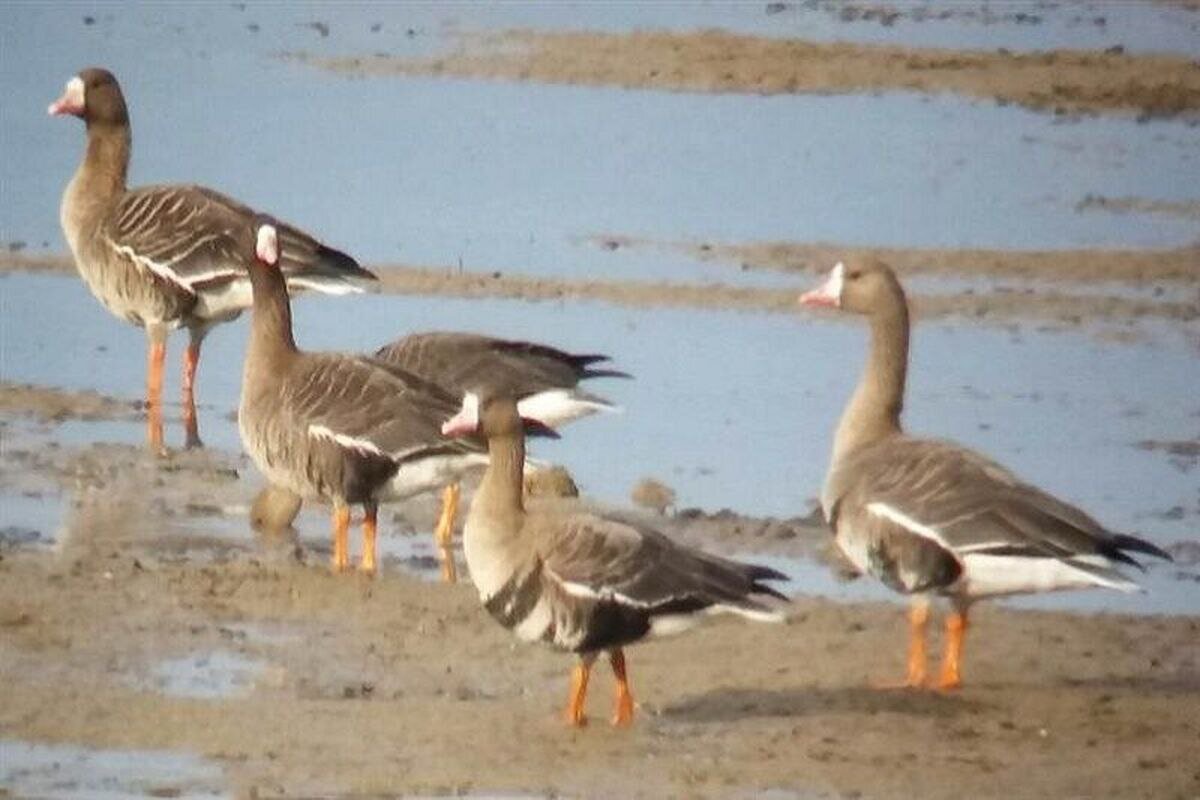Solduz wetland hosting whitefronted geese
Solduz wetland hosting white-fronted geese
TEHRAN –The first flock of lesser white-front geese has been spotted in Solduz wetland in Naqadeh county, northwestern West Azarbaijan province.

A total of 19 birds have been seen in the wetland, Borna reported.
The birds are resting and refueling over their long journey from the northern to the southern regions.
They use swamps, freshwater lakes, and wetland habitats with no trees or agricultural, and grasslands to spend the winter. The birds feed on roots, stems, and seeds of the plants and also eat insects, and they fly in a V-formation.
White-fronted geese are known to be endangered; however, an international conservation plan has been developed to recognize and remove the threats to help increase their population.
Currently, in addition to this bird, some native species such as sandpipers, stilt, gull, teal birds, fulica, herons, and all species of ducks can be seen in the wetland.
The wetland is also home to mammals such as boars, wolves, and jackals.
Iran important stopover for migratory birds
Iran is the most important country in West Asia in terms of housing migratory birds in winter as around two million birds fly each year to spend winter in the country’s wetlands, according to an official with the Department of Environment (DOE).
Encompassing numerous wetlands, reservoirs, and diverse water bodies, Iran welcomes millions of migratory birds every year.
The country has also emerged as the most important stopover for migratory birds in their flight route from Siberia to the Nile as sixteen percent of them select to spend the winter in the country, ISNA quoted Hassan Akbari as saying.
He made the remarks on the occasion of World Migratory Bird Day which is celebrated on May 11 to raise awareness about the importance of migratory birds and the need to protect them.
A diverse array of migratory birds fly to the country, with more than 160 species of aqua and waterside birds identified in Iran which is a significant number.
Despite limited water resources in the domestic habitats of the country, the study of the migratory bird population trend shows that the abundance and diversity of the birds that enter the country have not decreased. The majority of them have flown to the coastal areas of the Caspian and the Persian Gulf, though.
Iran hosts more than five percent of the world’s migratory birds in 450 sites in winter, Akbari said.
“Every year some 30 to 40 million birds are counted all over the world and the related statistics are recorded in the International Waterfowl Census (IWC) database,” he added.
MT/MG
source: tehrantimes.com